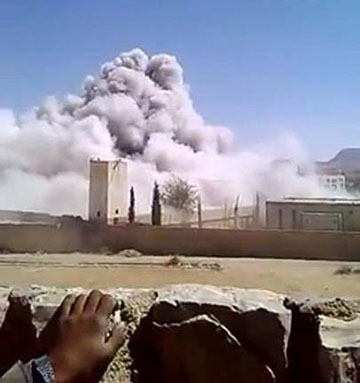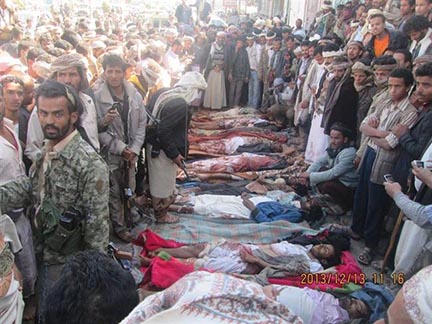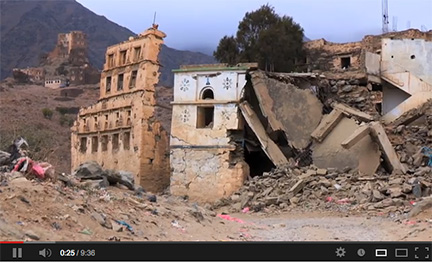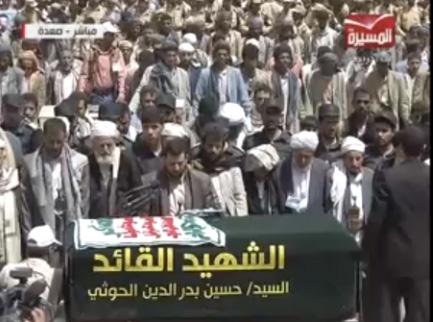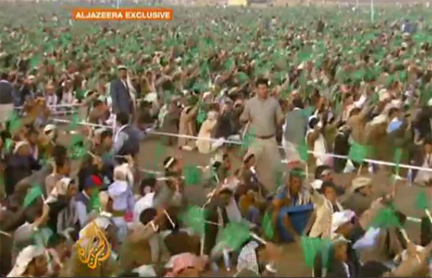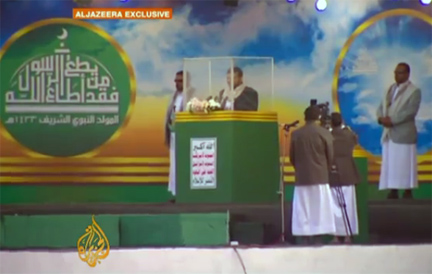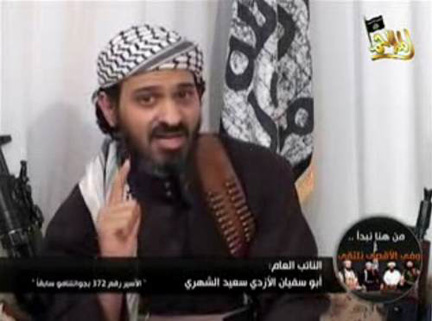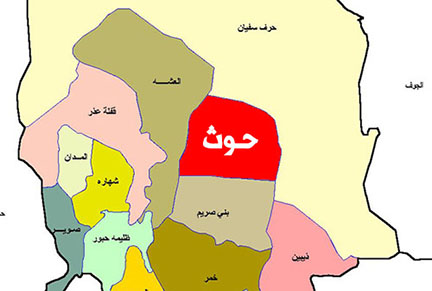
رجال قبائل والØوثيون يوقعون اتÙاقاً لوق٠الاقتتال ÙÙŠ عمران وإخراج المسلØين الواÙدين إلى المنطقة
المصدر أونلاين – خاص
الثلاثاء 4 Ùبراير 2014 05:38:47 مساءً
قالت مصادر Ù…Øلية إن اتÙاقاً جرى توقيعه اليوم الثلاثاء بين قبائل Øاشد وجماعة الØوثيين المسلØØ© لوق٠الاقتتال ÙÙŠ Ù…ØاÙظة عمران وإخراج المسلØين الواÙدين إلى المنطقة وتأمين الطرقات.
وذكرت المصادر لـ”المصدر أونلاين” إن القبائل والØوثيين اتÙقوا على إخراج المسلØين الواÙدين الى المنطقة، ÙˆÙØªØ ÙˆØªØ£Ù…ÙŠÙ† الطريق العام وعدم التجوال بالأسلØØ© الثقيلة، ونشر قوات الجيش ÙÙŠ عدد من المواقع ÙÙŠ منطقتي خيوان ÙˆØوث.
وجاء الاتÙاق برعاية اللجنة الرئاسية المكلÙØ© بإيقا٠إطلاق النار برئاسة قائد قوات الأمن الخاصة اللواء Ùضل بن ÙŠØيى القوسي وأمين العاصمة عبدالقادر هلال.
ونص الاتÙاق على انسØاب الطرÙين من مواقع الاقتتال، وعدم العودة إليها لاØقاً أو استØداث مواقع أخرى، وكذا منع الطرÙين من “أي أعمال تثير الÙتنة”.
كما نص الاتÙاق على إعادة المهجرين من مديرية Øوث إلى قراهم وبيوتهم وأموالهم.
لكن مصدراً قبلياً قال لـ”المصدر أونلاين” إن الشيخ Øسين الأØمر غادر عمران بعدما Øصلت ما وصÙتها بـ”الخيانات”ØŒ من قبل عدد من مشائخ ريده وخيوان ÙˆØوث، الذين أعلنوا عدم Ù…Øاربة الØوثيين ÙˆØ§Ù„Ø³Ù…Ø§Ø Ù„Ù‡Ù… بالدخول إلى مناطقهم.
ونÙÙ‰ المصدر قيام الØوثيين بتطبيق الاتÙاق، قائلاً إنهم يتجولون بأسلØتهم الخÙÙŠÙØ© والثقيلة، ويتوسعون بشكل كبير، Ùيما لم تنتشر القوات العسكرية الا ÙÙŠ مناطق Ù…Øدودة.
ÙˆÙÙŠ دنان، قالت مصادر Ù…Øلية لـ”المصدر أونلاين” إن الØوثيين عرضوا على أهاليها توقيع ØµÙ„Ø Ù…Ø¹Ù‡Ù…ØŒ مقابل عدم الدخول ÙÙŠ Øرب معهم.
وأضاÙت المصادر أن الأهالي واÙقوا على عقد Ø§Ù„ØµÙ„Ø Ù…Ø¹ الØوثيين، خشية من الدخول ÙÙŠ معارك جديدة معهم.
وسيطر الØوثيون خلال اليومين الماضيين على مناطق ÙÙŠ مديريتي (Øوث، والخمري) بعمران بعد معارك عنيÙØ© خاضوها مع رجال قبائل Øاشد المسلØين أسÙرت عن سقوط عشرات القتلى والجرØÙ‰ من الجانبين.
